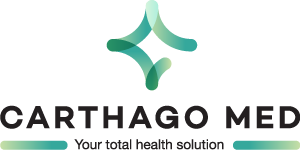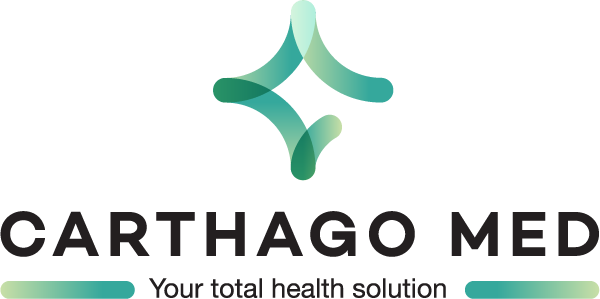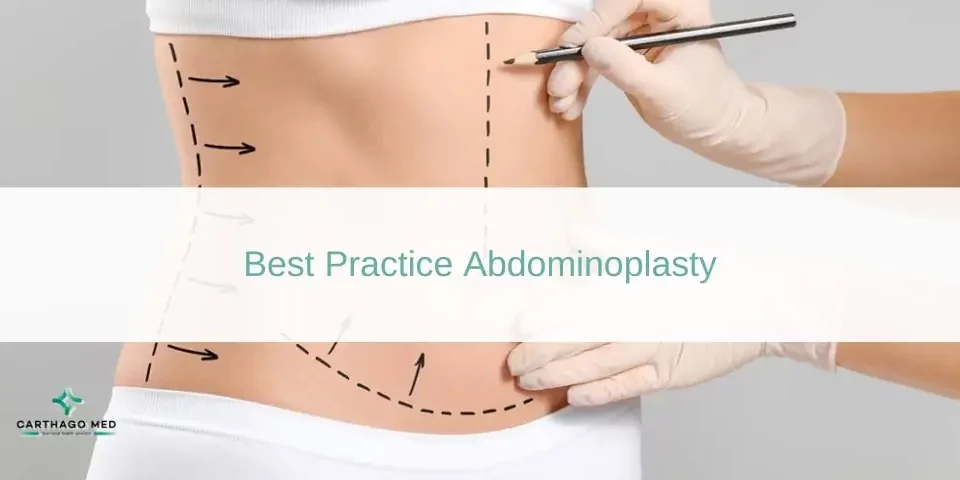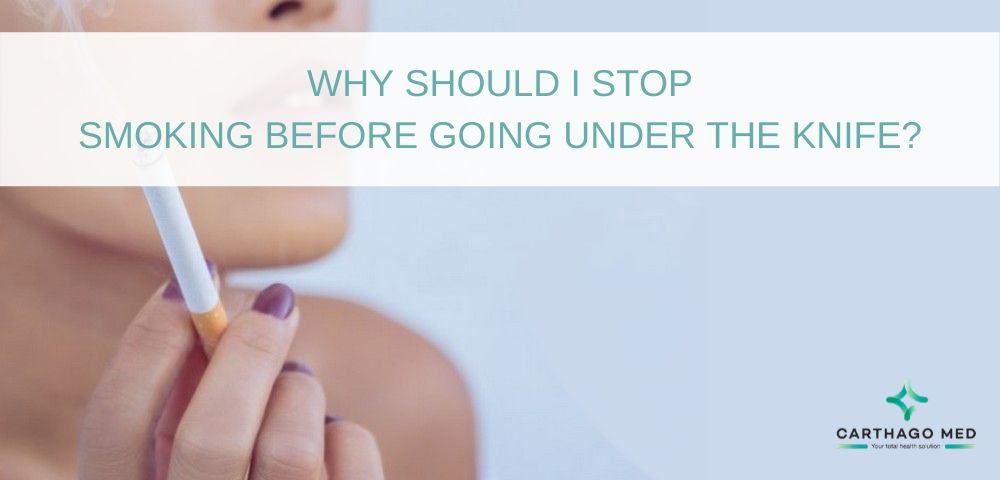
Why should I stop smoking before going under the knife?
It is commonly acknowledged that tobacco harms health. During your preliminary consultation with the doctor, you will be asked to provide personal information pertaining to your cosmetic surgery; among those, you will be asked whether or not you smoke.
If the answer is positive, your surgeon will ask you to stop for a certain period before your surgery. It is very important that the patient follow this recommendation and take it seriously as tobacco and cosmetic surgery do not combine well.
Smoking before the procedure
All cosmetic surgeons agree on stopping the consumption of tobacco for at least a month before the scheduled surgery.
Nowadays, diseases and health complications caused by tobacco are old news to everyone: cardiovascular diseases, chronic breathing problems, strokes, heart diseases and other complications that can be more serious than the latter. If the patient already suffers from one of the these conditions, this can present a contraindication to the surgery and the latter will therefore be too risky to perform.
In addition, tobacco accelerates skin aging and causes wrinkles due to the deterioration of elastic fibers. A smoker’s skin is always greyish, less radiant and ages quicker than that of a non-smoker. Cutaneous quality will be deteriorated, less hydrated and scarring will not heal properly on the skin. Quitting tobacco will reverse the latter and help the patient undergo their cosmetic surgery with no complications and in the best conditions possible.
Smoking after the surgery
It is recommended not to smoke for a month after the surgery as tobacco may cause poor oxygenation of skin tissues and therefore does not help with the healing process.
Indeed, nicotine may cause the constriction of arteries. The latter are responsible for the the flow of oxygen to all parts of the body. Blood flow becomes exceedingly less important in the bodies of smokers, hence the reason why post-surgical scarring does not heal properly and may even result in complications later on.
Regardless of whether the patient wants to undergo a rhinoplasty, an abdominoplasty or a breast enhancement surgery, the surgeon’s recommendations remain the same because the risks are equally important. Scar healing defaults engenders a heavier recovery and a high risk of complications.
Risks of bruising, swelling, phlebitis, pulmonary embolism (due to the constriction of arteries), and post-operative infections are twice more likely to happen for regular consumers of tobacco.
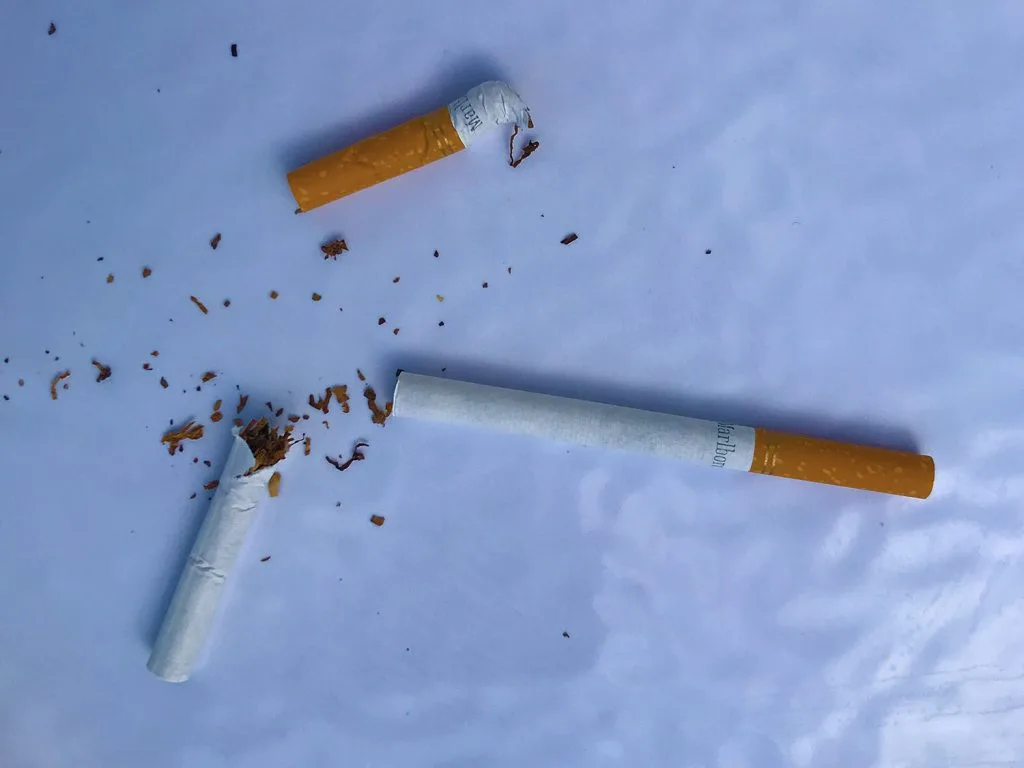
Smoking prevents healing
Your body requires a healthy supply of oxygen to aid in healing after surgery. When you smoke, the molecules responsible for transporting oxygen throughout your body, known as hemoglobin, are unable to carry an adequate amount of oxygen to your organs and tissues. Consequently, your body becomes deprived of the oxygen necessary to repair wounds and generate healthy new tissue.
Additionally, smoking leads to the narrowing of blood vessels, which can impede the flow of blood, oxygen, and nutrients to your healing wound.
Smoking raises your risk of infection
Your blood contains cells called neutrophils that help fight infection. Smoking causes these cells to lose some of their infection-fighting power, which can double your chances of getting an infection after surgery compared to a non-smoker. If you develop an infection, it will not only slow your recovery, but you may need to take antibiotics, have another surgery, or spend more time in the hospital.
Smoking increases inflammation and sometimes pain
Smoking exacerbates inflammation, leading to heightened levels of pain in some cases. The chemicals present in cigarettes have been shown to escalate inflammation, resulting in increased swelling throughout the body. Following surgery, this additional swelling can intensify the pain experienced by smokers compared to non-smokers.
Getting the Support You Need
Obtaining the necessary support is crucial throughout your recovery journey. Should you encounter an infection, it's important to recognize that it can impede your progress, potentially necessitating antibiotic treatment, additional surgical procedures, or prolonged hospitalization. During your stay, you'll have the opportunity to consult with a highly skilled nurse practitioner who will conduct a comprehensive assessment to better understand your overall health status.
In conjunction with a thorough examination, you'll receive pre-surgery education aimed at minimizing potential complications. Collaboratively, you and your nurse practitioner will devise a tailored plan aimed at assisting you in your efforts to quit smoking. This plan may involve referrals to smoking cessation programs or other specialized professionals who can offer support.
What if you are not motivated enough to stop smoking?
If you find yourself lacking the motivation to quit smoking, consider the potential life-changing benefits that cosmetic surgery can offer. Studies have revealed that a significant portion, approximately 40%, of smokers who opt for cosmetic surgery ultimately quit tobacco for good following their procedure. This statistic highlights the transformative potential of cosmetic surgery as a catalyst for embracing a tobacco-free and healthier lifestyle. By taking this step towards enhancing your appearance and overall well-being, you not only invest in your physical health but also in your long-term quality of life.







